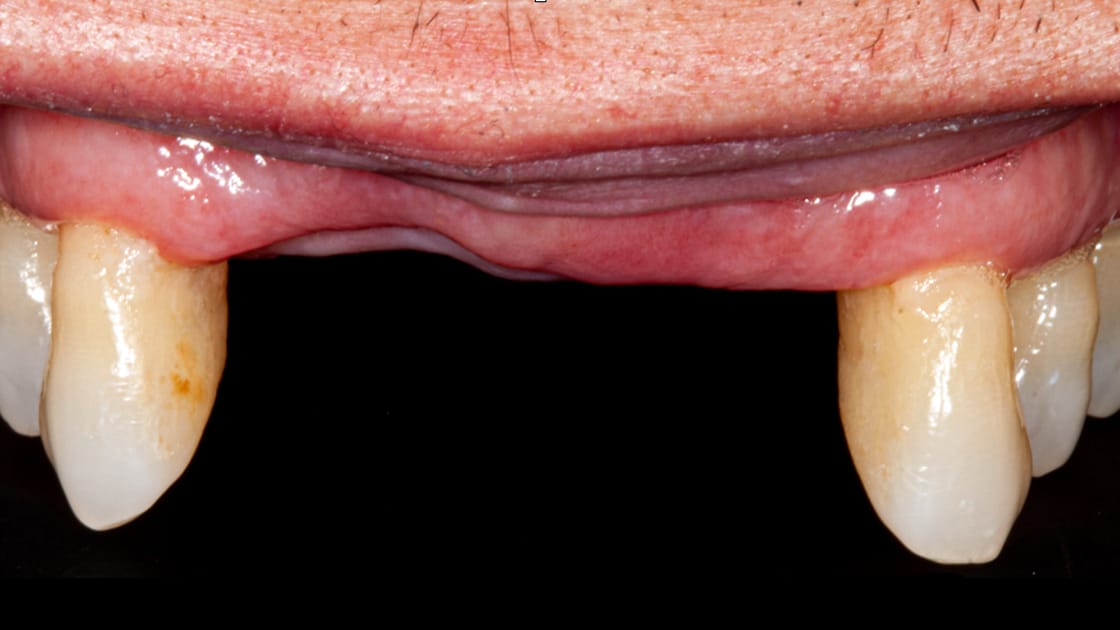
The best solution to replace missing teeth, dental implants can simulate the look, feel, and function of natural teeth. Implants can help preserve the health of neighboring teeth, maintain bone structure, contribute to an improved ability to chew, and provide patients with the confidence to smile.
Implant supported bridges are an effective solution to replace multiple missing teeth. Because of the natural look and feel and the functional stability provided by the implants, implant supported bridges are an effective solution to replace multiple missing teeth. But it's important to know how to properly maintain these implants to ensure their long-term success.
To maintain the results of your dental implants, it is crucial to adopt a diligent oral hygiene routine. Just like caring for your natural teeth, brushing and flossing daily are essential. Regular visits to your dentist for routine exams and cleanings are also vital to identify any potential issues early on and ensure the health of your implants.
In addition to regular brushing and flossing, it is recommended to incorporate a Waterpik or any kind of water flosser into your oral care routine. This can be used as a supplement to regular flossing, effectively cleaning hard-to-reach areas around the implants and reducing the risk of plaque buildup.
Furthermore, scheduling regular periodontal maintenance appointments is highly advised to properly maintain the results of your dental implants. These appointments allow your dentist to assess the condition of your implants, perform professional cleanings, and address any concerns promptly. By engaging in regular periodontal maintenance, you can significantly contribute to the longevity and success of your implants.
For patients missing many or all of their teeth, implant retained or implant supported dentures may be an alternative to traditional dentures. These solutions can simulate the look and feel of natural teeth and stay fixed in place with the implants acting as anchors. Using implants for retention or support of dentures allows for a smaller and more comfortable base and minimizes the risk of shifting during use.
In summary, to maintain the results of your dental implants, a thorough oral hygiene routine is crucial. This includes daily brushing and flossing, regular dental visits, and the use of a water flosser. Additionally, scheduling periodontal maintenance appointments will help ensure the long-term success of your implants. By following these guidelines, you can enjoy the natural look, feel, and functionality of your implant supported bridges or implant-retained dentures for years to come.
Visit our Dental Implants Smile Gallery for More Transformations!
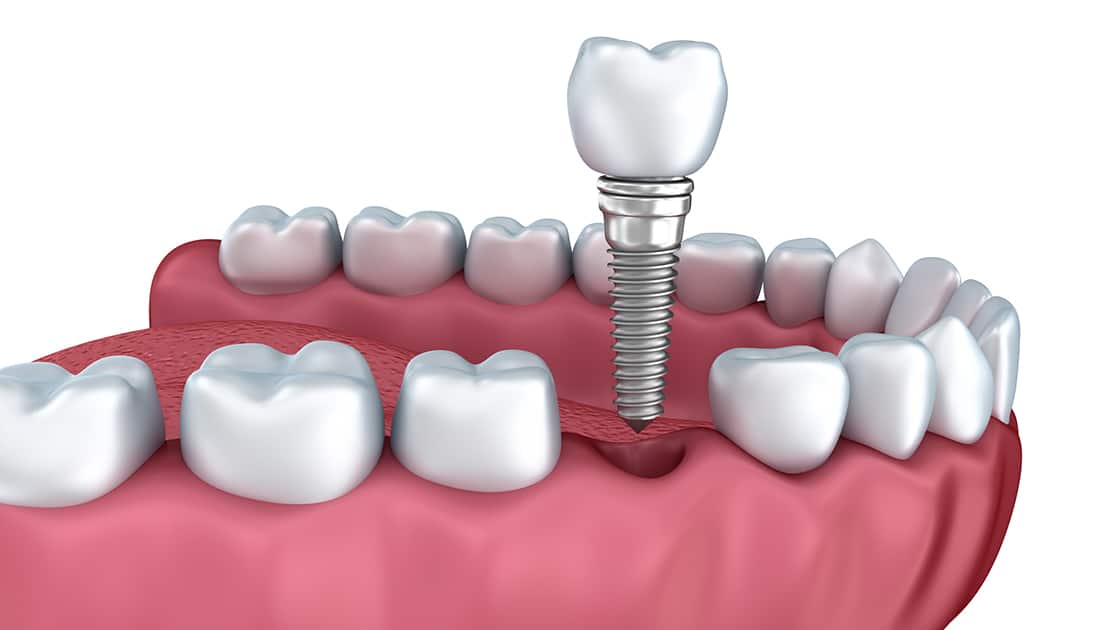
Single Dental Implant
Dental implants are small titanium posts that are surgically placed into the jawbone used to replace missing teeth and roots. The bone bonds with the titanium, acting as a tooth root substitute. Following the bonding process, posts are attached to the implant allowing for dental prosthetic attachments.
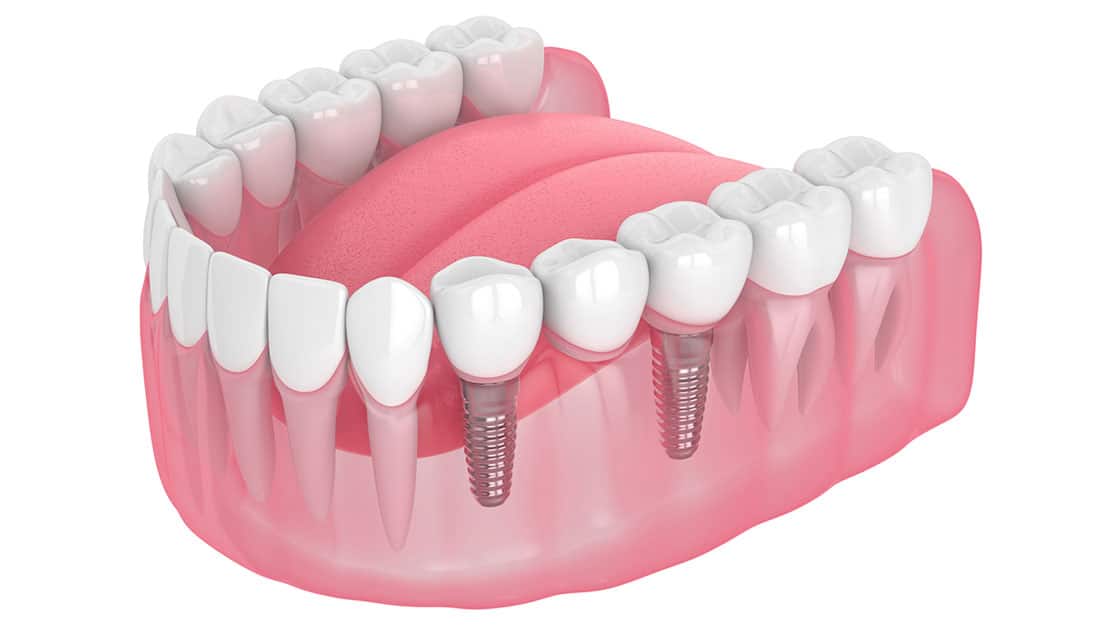
Implant Supported Bridges
What are the advantages of an implant supported bridge?
Because of the natural look and feel and the functional stability provided by the implants, implant supported bridges are an effective solution to replace multiple missing teeth.
A traditional bridge uses teeth on either side of the missing tooth space for support, and preparing teeth for crowns can weaken them. Because these teeth serve as attachments, they are subject to additional forces that can damage both healthy and compromised teeth or bone tissues.
A dental implant supported bridge replaces missing teeth by placing two or more dental implants rather than adjacent teeth. These implants avoid putting any additional stress on your natural teeth and help preserve the health and function of the surrounding bone tissue and teeth.
Full Arch Solutions
For patients missing many or all of their teeth, implant retained or implant supported dentures may be an alternative to traditional dentures. These solutions can simulate the look and feel of natural teeth and stay fixed in place with the implants acting as anchors. Using implants for retention or the support of dentures allows for a smaller and more comfortable base and less shifting of the prosthesis during use.
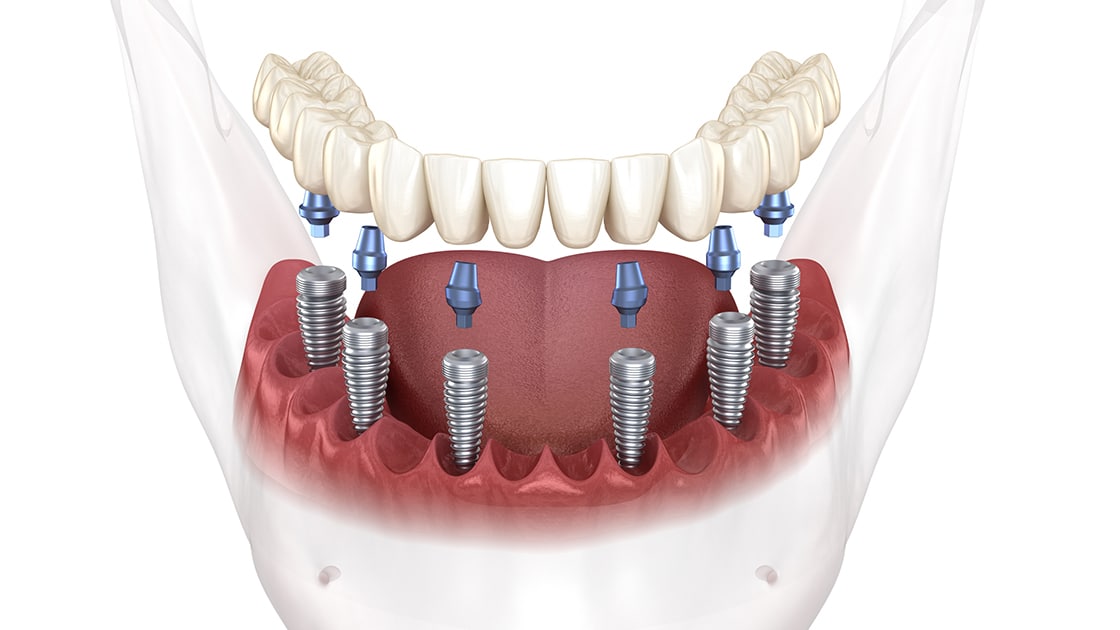
Implant Supported Dentures
An implant supported denture requires the placement of four to six dental implants as “anchors” to provide a sturdier fit and minimal mobility for your denture. With implant supported dentures, there is no plate covering the roof of the mouth, so speaking and eating are more natural and comfortable than with traditional dentures. For qualifying patients, our doctors may be able to complete the removal of all teeth and the placement of a temporary arch on the same day.
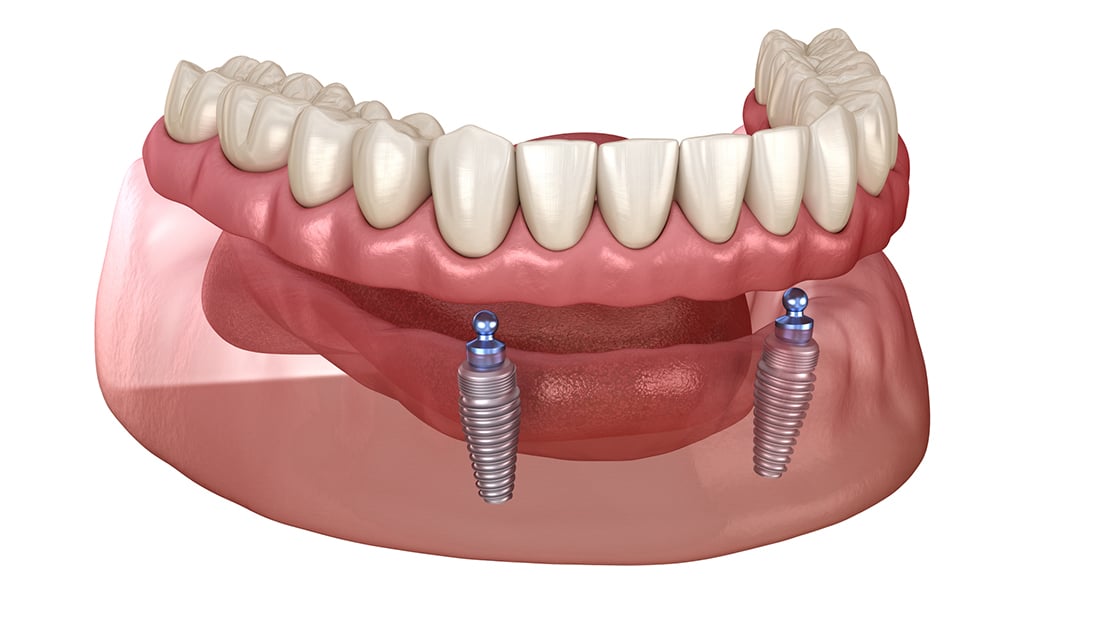
Implant Retained Dentures
Available for full or partial dentures, implant retained dentures require the placement of two or more dental implants to secure the dentures in the mouth. This type of denture will “snap” onto the implants and can be removed for cleaning at night.
